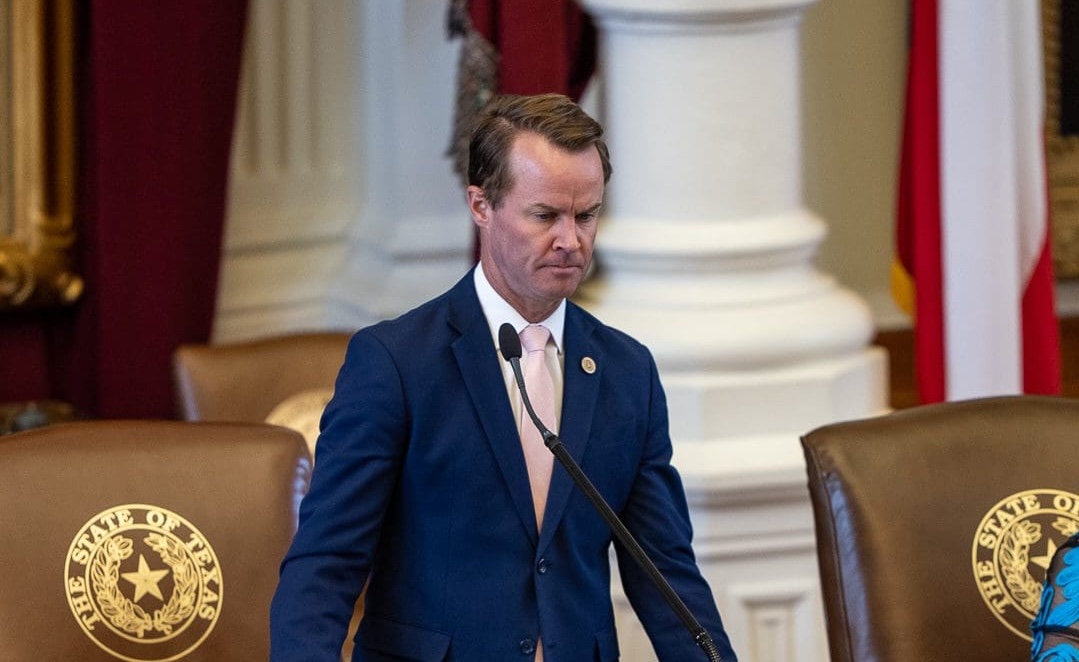With just a few weeks left for Texas lawmakers to pass bills this session, conservative grassroots leaders say they expect the Republican-controlled Legislature to enact top-priority election integrity reforms but remain skeptical of whether legislators will deliver real results.
“Every single one of our legislators should be eager to assert their authority to protect voters against fraud; election criminals in either party; and activist county judges, county clerks, and election administrators,” JoAnn Fleming, head of powerhouse conservative advocacy group Grassroots America – We The People, told Texas Scorecard this week.
Fleming and other longtime activists in the election integrity movement laid out their expectations for legislators to pass substantive measures called for by the grassroots.
“It just better not be a show bill short on true reforms,” Fleming said.
Lawmakers in the House and Senate have filed multiple bills with priority reforms sought by election integrity advocates, but it’s unclear at this point which will end up becoming law.
“I think something will get passed because Gov. Abbott has made election integrity a priority,” said Fran Rhodes, president of influential conservative activist organization True Texas Project. “But whether or not we can call it ‘good’ remains to be seen.”
Setting Priorities
Interest in securing elections intensified during 2020 as voting rules were loosened without legislative oversight, but this year’s election reform priorities are much the same as in past sessions: clean up voter rolls, secure mail ballots, stop illegal voter assistance, make sure voting machines produce accurate results, and punish cheaters.
Grassroots activists in the Republican Party of Texas chose election integrity as their top legislative priority for 2021 during their convention last summer.
The RPT’s Legislative Priorities Committee specified two policy goals: set felony penalties for election fraud crimes and verify only citizens are registering and voting in Texas elections. An ad hoc RPT committee revived from last session set additional election integrity goals for 2021: improve mail-ballot security and enforce voter list maintenance.
Both committees identified several House and Senate bills that met their election integrity goals, including House Bill 6 and Senate Bill 7, the Legislature’s top-tier comprehensive “omnibus” bills addressing the priority issue.
This is the second session in a row that election integrity is an RPT legislative priority, and it’s the only RPT priority this session also given fast-track emergency status by Republican Gov. Greg Abbott back on February 1.
Rating the Process
“I get the feeling that they are all (House and Senate) just going through the motions of passing something to appease the citizens, and they don’t care that much about what is actually in the legislation,” Rhodes told Texas Scorecard.
“They seem to be focused on being able to say they passed an election integrity bill—any election integrity bill. Where’s the integrity in that?”
“Citizens are not as dumb as they think we are, and we will not let them get away with that,” added Rhodes, who regularly leads TTP’s grassroots army of citizen-advocates on road trips to Austin to meet with lawmakers and testify on key bills.
Alan Vera, chair of the Harris County Republican Party Ballot Security Committee, has been involved in working elections for over a decade. He frequently shows up in Austin to testify on election reform measures and advises lawmakers on legislation.
Vera said the Senate has been handling election integrity legislation “promptly and efficiently, primarily because they are able to suspend their rules,” but the House has been “slower and far less efficient, primarily because of the antiquated calendars process.”
Fleming agreed the House process has not been as efficient and transparent as it should and could have been:
I’ve been around long enough to know that is as much a part of leadership’s backroom strategy as are committee chair appointments. Based on conversations with key grassroots leaders on this issue, we are concerned about the number of days left in session to get this right.
“We are totally mystified as to how and why this emergency priority for Governor Abbott is being addressed this late in session,” she added.
Defining Success
What are “must pass” reforms for election integrity advocates to declare success?
“Of course, the entire list is important,” said Fleming.
All three advocates put enforcing current election laws at the top of their lists.
“Strong, enforceable penalties for anyone breaking election laws—especially election officials—is a top priority,” Fleming said. “Without enforceable punishment, the law is rendered meaningless.”
“This is a big one for me,” Rhodes said:
What’s the point of passing new laws about elections if no one is enforcing the ones we already have? We can pass all the legislation in the world saying we have secure elections, but if enforcement at any level is lacking, then we have wasted our time, and rule of law has no meaning anymore. …
Even our own governor was given a pass when he changed election law by extending the early voting period in 2020. Only the Legislature has the authority to change election law, but everyone gave him a pass because it seemed like a good idea.
“We can write brilliant election laws, but they don’t matter if there is no effective enforcement vehicle,” Vera agreed.
Vera said real-time enforcement of election laws by law enforcement and court processes that address election issues in real time are key reforms. His other top goals include an overhaul of the state’s “ineffective county-level voter registration system” and better protection and flexibility for poll watchers.
Rhodes and Fleming also cited clean voter rolls and citizenship verification as top-priority reforms.
“We consider citizenship verification from the point of registration forward to be imperative, which is part of verifying the voter rolls,” said Fleming.
“They go hand in hand,” added Rhodes. “If noncitizens and dead people can vote because of faulty voter registration rolls, then you will never have election integrity.”
Rhodes also said mail-in ballot systems must be tightened up.
“I’ve worked the Ballot Board in my county for four years, so I see up close and personal how it works,” she said. “It is not a secure system on its best day, and the 2020 cycle with COVID brought additional issues as elections officials were allowed to stretch or ignore the law regarding mail-in ballots.”
“End-to-end voting system security with paper-ballot backups and audits is critical,” Fleming added.
Whatever reforms lawmakers pass this session, Rhodes says it’s up to citizens to ensure the integrity of Texas elections:
I believe that if elections are to be fair and secure, conservative grassroots activists will need to be more engaged in election processes, and as leaders, we need to provide better election training for those who serve, and do a better job of recruiting election workers.
Progress Report
Texas Scorecard is tracking the progress of key election integrity bills in the House and Senate.
The Senate passed five of its six RPT-priority election integrity bills in April, including SB 7.
The House has moved most priority election bills through the Elections Committee and passed one. HB 6 is on the House Major Calendar for Thursday, May 6.
“SB 7 had the protections we were looking for before it got substituted for HB 6, so we’ll have to see how the amendment and/or conference committee process goes,” Rhodes said.
“The state Legislature’s constitutional responsibility to direct election protocols is foundational,” said Fleming:
If they fail to pass solid election reform without working one single Saturday, Sunday afternoon, and far into the night—every night—to achieve results, they deserve to be classified as abject failures. And they will.
The clock is ticking for the Republican-controlled Legislature to get priority election reform bills to the governor’s desk before the session ends on May 31. Grassroots election integrity advocates expect no less.





